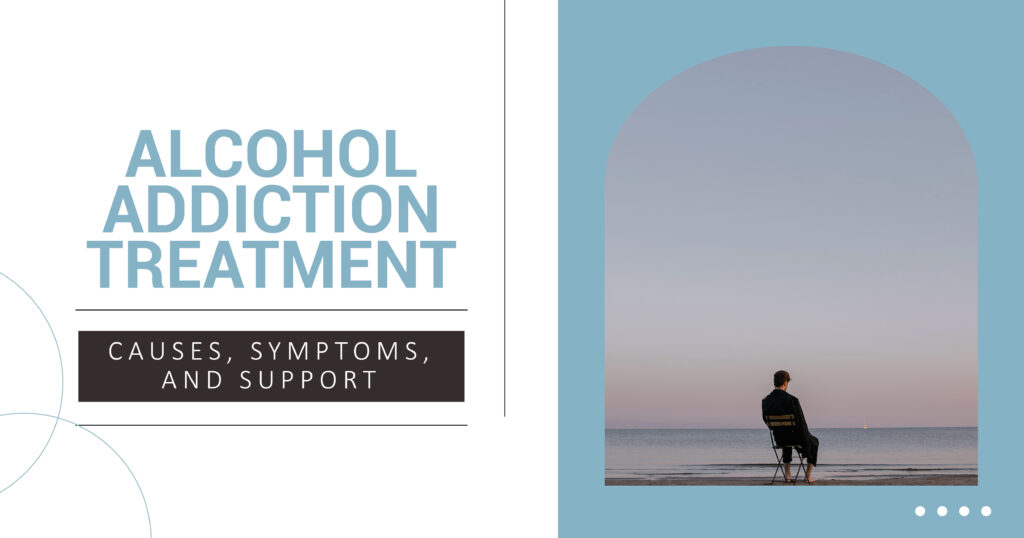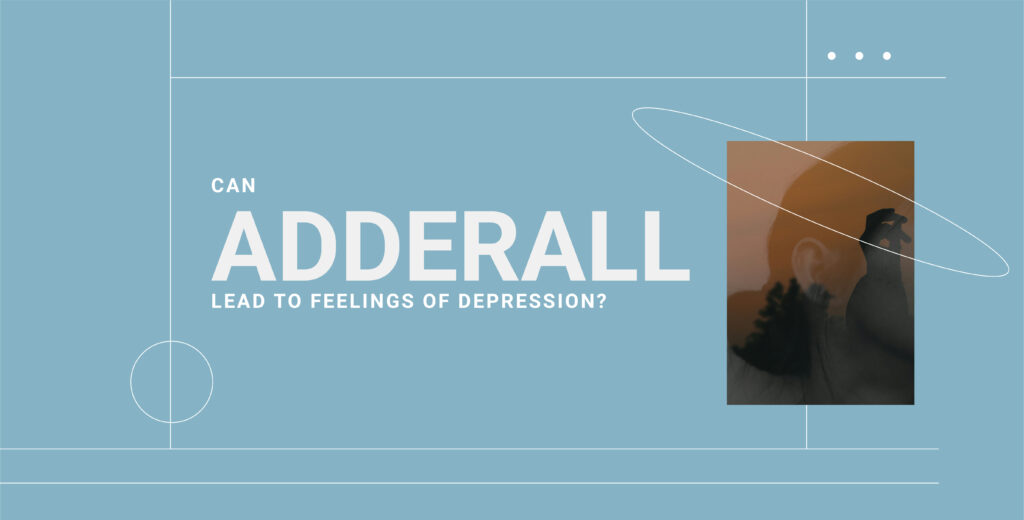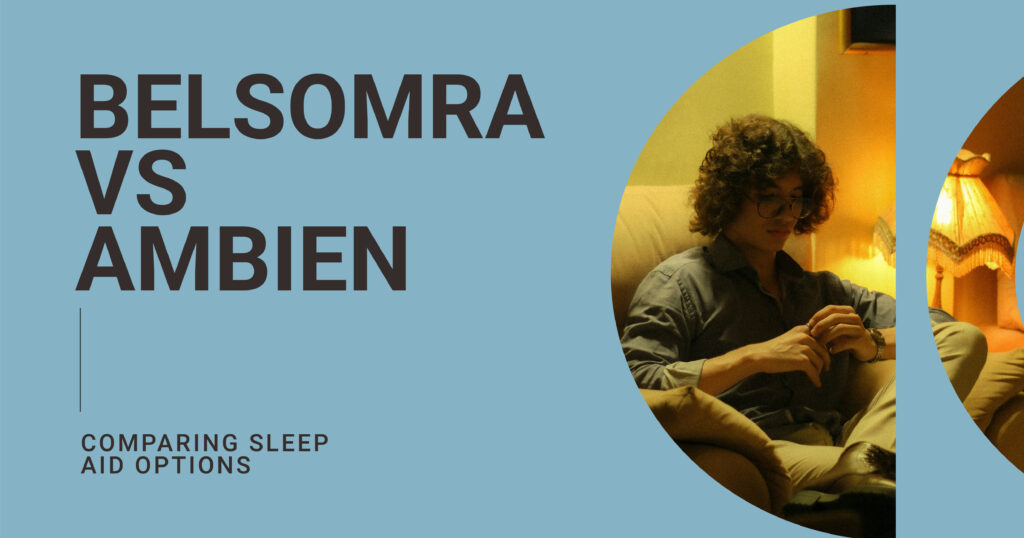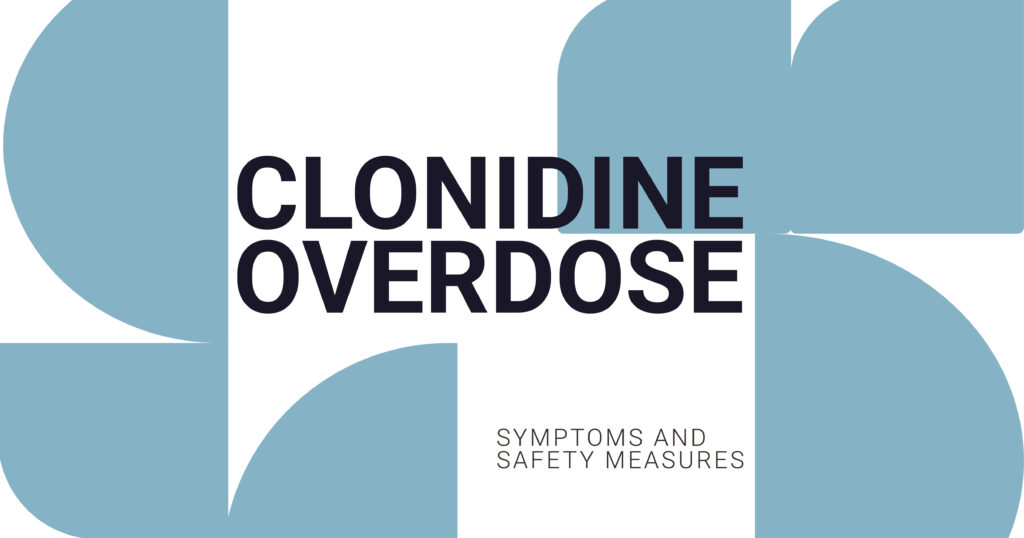What Is Alcohol Addiction?
The disease of alcohol addiction is also called Alcohol Use Disorder (AUD). It is a chronic disease and relapsing disorder marked by compulsive drinking, as well as difficulty in controlling alcohol use that worsens multiple aspects of life (health, work, relationships, etc.). This condition gradually worsens from mild to severe, causing substantial physical, psychological, and social problems.
Alcohol addiction results when the brain adjusts to the presence of alcohol and shifts its chemistry in a way that the body is dependent on alcohol just to maintain its usual function. The individual becomes tolerant, so they need more and more alcohol to feel any effects, as well as start experiencing withdrawal when not drinking.
How Alcohol Addiction Impacts the Mind and Body
Alcohol has wide-ranging effects on every system in the body.
Immediate short-term effects are the following:
- Foggy Brain. Alcohol slows down brain function, leading to confusion and difficulty concentrating.
- Poor Coordination. Impaired motor skills make balancing, walking, or performing simple tasks harder.
- Forgetfulness. Short-term memory is affected, causing blackouts or difficulty recalling recent events.
Excessive use of alcohol regularly may result in health issues such as:
- Liver Damage. Fatty liver, alcoholic hepatitis, cirrhosis, and liver failure
- Cardiovascular Problems. High blood pressure, irregular heartbeat, stroke, heart disease.
- Neurological Impairments. Cognitive decline, memory loss, and nerve damage.
- Mental Health Disorders. Greater chances of depression, anxiety, and other mental health problems.
- Weakened Immune System. People are more likely to get infected or sick than healthy folks.
Recognizing the Early Signs of Alcohol Use Disorder
Early identification of alcohol dependence helps to treat the disease better. Here are some common signs:
- Drinking more or longer than planned.
- Unable to stop drinking or cut back on alcohol use.
- Lying, stealing time to use/return from alcohol.
- Excessive drinking causes neglect in the job, school, or family.
- Using alcohol even though others have noticed problems and there is a negative effect on social or health.
- Symptoms include nausea, sweating, or shaking when you do not drink.
Causes and Risk Factors of Alcohol Addiction
Genetic, Environmental, and Psychological Factors
Alcohol addiction treatment is usually integrated with addiction mental disorders in a general context. Around 50% of people are predisposed to AUD due to genetics.
Other risk factors of AUD are a lot more different things like peer pressure, family history of alcoholics, etc. After people with other mental health disorders like anxiety, depression, PTSD, and trauma, they will self-medicate with alcohol.
How Much Is Too Much? Understanding Alcohol Consumption Limits
Scientific knowledge of alcohol limits enables one to stop using treatment options in alcohol dependency prevention. The Centers for Disease Control and Prevention (CDC) define moderate drinking as:
- Men. Limit to 2 drinks/day.
- Women. Up to 1 drink/day.
High-risk Drinking
- Men. 5 or more drinks on an occasional basis.
- Women. 4 or more.
It is defined as consuming too much to be held for two hours, which worsens availability for Alcohol Use Disorder.
The Link Between Mental Health and Alcohol Addiction
Alcoholism is connected with several mental health disorders. Uncontrolled conditions like anxiety, Bipolar Disorder, or PTSD prohibit many from having the coping mechanisms they need to turn to alcohol for comfort, leading to dependence.
Diagnosing Alcohol Use Disorder
How Is Alcohol Addiction Diagnosed by Professionals?
Healthcare professionals diagnose alcohol dependency via comprehensive assessments of alcohol use (quantity–frequency), physical examination, and psychological symptoms. Some standard diagnostic measures include blood tests, behavioral assessments & lifestyle habits interviews.
Screening Tools and Diagnostic Criteria
Standardized Screeners for the Assessment of Alcohol Use Disorder Severity:
| CAGE Questionnaire (Cut, Annoyed, Guilty, and Eye) | Four-item screening tool for alcohol abuse. |
| AUDIT (Alcohol Use Disorders Identification Test) | A standardized 10-item test assessing risky drinking patterns. |
DSM-5 Criteria | The symptoms for mild, moderate, or severe AUD according to the Manual for the Diagnosis and Statistical Manual of Mental Disorder (DSM-5). |
When to Seek a Diagnosis
Alcohol only becomes an issue when it starts to affect your quality of life, work health, and family, so it is time to seek a diagnosis. An alcohol detoxification service can provide “early intervention” and avert further complications.
Supporting Recovery Through Therapy and Counseling
Individual Therapy for Alcohol Addiction
The most important of those roles include alcohol abuse counseling. Alcohol addiction treatment brings up triggers and responses you can work on, digging deeper into emotional triggers you need help with. Classic techniques associated with CBT and Motivational Interviewing.
Group Therapy and Support Groups
Alcoholics Anonymous (AA) and similar support groups offer community and accountability. Support groups where you get emotional support and shared experiences help to increase the odds of a successful recovery from alcohol recovery.
Family Therapy: Involving Loved Ones in Recovery
Family therapy also provides education to family members on addiction and teaches coping mechanisms for recovery. Reintegrating the family into alcohol rehab programs brings them together and solidifies the commitment at home.
Preventing Relapse After Alcohol Addiction Treatment
The Importance of Aftercare Programs
Aftercare programs, sober living homes, and outpatient counseling support people to stay sober. The addiction treatment centers have also included aftercare planning for relapse prevention in the treatments for alcoholism.
Coping Strategies for Long-Term Sobriety
Staying sober long-term means learning stress management, keeping busy with healthy things, and steering clear of high-risk behavior that might lead to a relapse.
How to Build a Support Network After Rehab
Staying connected to alcohol recovery support groups, participating in therapy, and having a support base of people are all part of building your support network.
Holistic Approaches to Alcohol Addiction Recovery
Incorporating Mindfulness and Meditation
Mindfulness techniques can be an essential weapon for both cravings and stress and, therefore, part of one of the helpful tools for being treated for alcohol addiction.
Nutritional Therapy for Healing the Body
Correct nutrition is used to repair damage caused by alcohol. Nutrition is paramount in vitamin, mineral, and hydration-based recovery.
The Role of Exercise in Alcohol Addiction Recovery
Alcohol addiction can be daunting but entirely manageable. When coupled with the right form of therapy, medical assistance, and lifestyle changes, recovering from alcohol addiction becomes much more manageable. Beating an addiction takes a lot of perseverance, but with professional help, support groups, and aftercare integration, the process becomes infinitely more manageable. If you or someone you know struggles with alcohol addiction, begin taking the necessary steps toward a fulfilled sober life.
FAQs
- What are the first steps to treating alcohol addiction?
The starting point is to identify the issue and get help from professionals. There are detoxification services for alcohol that help you deal with the symptoms safely.
- How long does alcohol rehab take?
Alcohol rehabilitation programs can last from 30 days to several months, depending on factors specific to each person.
- Are support groups effective in alcohol recovery?
Of course, Alcohol Recovery Support Groups are critical for the emotional support, social and whatever else runs through your system that is necessary to stay in recovery.
- What treatments are available for alcohol addiction?
Treatment options include alcohol counseling, abuse, medical detox, group work, and holistic strategies.
- Can alcohol addiction be completely cured?
There is no cure-all, but there is a treatment for alcohol addiction that helps individuals work through the disease so they can keep a life sober and happy.




